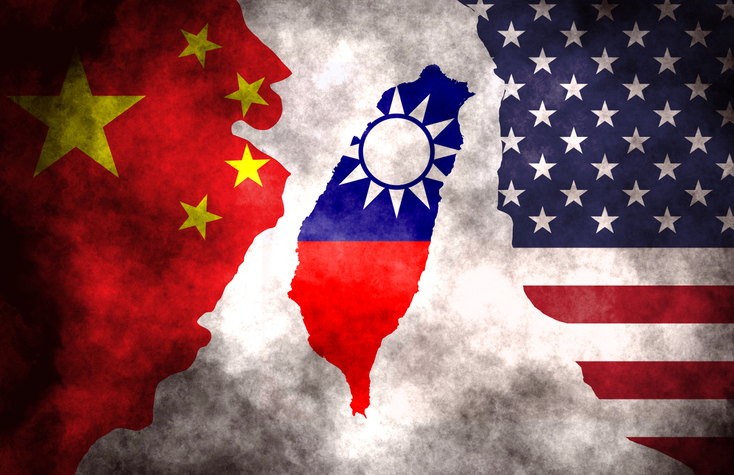Taiwan: Here’s why the Jan. 13 vote will impact the world

Tomorrow, Saturday January 13th, Taiwan represents an unprecedented moment. in which the election of its new president and the renewal of the parliament will be voted on. An election that, this time more than ever, risks becoming a referendum on relations with the cumbersome giant China. A referendum, as the two main parties are taking it to the extreme, between “peace and war” for the Kuomintang (KMT) in opposition, As is well known, the historic party formerly led by General Chiang Kai-shek more focused on dialogue with China, between “democracy and authoritarianism” for the ruling party. Party, this democratic-progressive (DPP), who, after two terms and eight years at the helm, is struggling with a certain physiological “fatigue” of the electorate. But this year the race is no longer a duel. The third wheel will be the People’s Party (TPP), which is attracting more and more young people who are tired of the old politics. These elections, along with the US and European elections, will be the most important of 2024 because they will serve We understand not only the evolution of cross-strait relations, but also the potential consequences for the two global superpowers, China and the United States. Beijing, which has claimed Taiwan as a “rebel province” for reunification with the motherland for over 70 years, is interested in understanding the future direction, while Washington continues to be the “guarantor” of ancient Formosa, providing weapons to strengthen the country’s defenses. Island. Even without the American shield, the position of Taiwanese politics is clear: defend its full democracy, reduce the risk of invasion, hoping not to be left alone and that China can best deal with the catastrophe that war brings would. In fact, according to polls published by the island’s media, almost 90% of Taiwanese want to maintain the status quo, de facto independence (62% of Taiwanese describe themselves as “Taiwanese only”, 30% as both Taiwanese and Chinese, and only the rest 3% Chinese).
Let’s look at who the candidates are and what the geopolitical implications are on a global scale.
Lai Ching-te, the favorite in the polls
This three-way race is led by Lai Ching-te of the DPP, Taiwan’s current vice president. The 64-year-old former doctor served as deputy and mayor of Tainan, a southern city, for two terms before becoming the island’s vice president in 2020. More recently, he has revised his more radical positions toward supporting independence and says he is willing to engage in dialogue with Beijing if the conditions are appropriate.
Beijing describes the DPP candidate as a “great danger”. If elected, Lai will trust America to bolster Taiwan’s fragile sovereignty and has promised to reduce its economic dependence on China: He hopes the island will sign more trade deals with other countries and more “partnerships with democracies around the world.” “can forge. But he says he is still open to dialogue with the major power across the Strait. A dialogue that has not existed between Beijing and the DPP for eight years.
Hsiao Bi-khim, Taiwan’s de facto ambassador to Washington until last November, was chosen as deputy: he had already been sanctioned by Beijing in the past and branded a “dangerous separatist”.
Hou You-ih, the favorite from China
Hou You-ih is the candidate of the Kuomintang, the party most inclined to dialogue with China, which wants to maintain the status quo. The 66-year-old Hou, the son of a pork seller in Chiayi County on the west coast, was the island’s police chief and currently the highly popular acting mayor of New Taipei. The former supercop who dreams of becoming president bases his strategy on three Ds: deterrence, dialogue and de-escalation. He says he is against a formal declaration of independence, rejecting Beijing’s “one country, two systems” formula (the same as Hong Kong).But we have to talk to China, and we are the only ones who can do it“. He says protecting the Republic of China, the state that the KMT brought to Taiwan in 1949 after the Nationalists’ defeat in the Chinese Civil War (and which is still the island’s official name), will be his ongoing commitment. While Hou is well-versed in local government and security issues, he has significantly less experience on the international stage. Beijing would obviously prefer a victory for the Kuomintang, which has repeated its dangerous narrative in this election campaign: a vote for the DPP leads to war.
Ko Wen-je, the “populist” that young people in Taiwan like
The third wheel is Ko Wen-je. Former mayor of the capital Taipei, he was a surgeon before entering politics ten years ago. After vacillating between the two major parties, he founded the TPP in 2019, a centrist party with populist prescriptions. Which is on the rise among younger people. Ko distances himself from the pairings of “democracy or autocracy” and “war or peace” and states that elections are rather a competition between “new and old politics”. Thanks to his eight years as a popular independent mayor of Taipei, Ko’s traditional support base is in the north of the country. His popularity (he has over a million followers on Instagram) continues despite his frequent gaffes. In October last year, he compared cross-strait relations to prostate cancer: a metaphor for the need to coexist with one’s enemies.
Possible scenarios for the outcome of the elections in Taiwan
“If Lai Ching-te wins, he would encourage separatist activities that would increase tensions between Beijing and Taipei“The spokesman for the Chinese office responsible for relations with Taiwan reported bluntly. The reaction of the Taiwanese foreign minister was immediate Joseph Wu, who replied: “Beijing should stop interfering in other countries’ elections and start organizing them at home“.
But for analysts, a victory in the Lai Ching-te election would not be enough to push the Chinese People’s Army to invade Taiwan. Especially in a complicated time when he is looking for stability instead. Also because it would jeopardize relations with the West, which he is trying to maintain despite thousands of balancing acts. Xi would much rather win without fighting, as Sun Tzu wrote in The Art of War. However, what could happen is this President Xi Jinping decides to assert his strength, for example through temporary naval blockades, to show his resolve to the man Beijing has labeled a “troublemaker.”
Although Beijing is flexing its muscles, any explicit military action would come at enormous cost to China itself. The Taiwan Strait plays a crucial role in China’s trade with the world. Bloomberg Economics has estimated the potential cost to the global economy at $10 trillion. And Taiwan has enormous strategic importance Manufacturing center for some of the world’s most advanced semiconductors (the island produces 60% of the world’s semiconductors and 90% of the most advanced semiconductors).
For Taiwanese voters, not only the China issue is on the agenda, but also the slowing economy, the costs of housing, wages and education. Among voters under 40, economic issues are a very high priority.
A victory for Lai could also increase tensions between China and the United States over Washington’s support for Taiwan. Beijing has repeatedly accused the Biden administration of “tolerating and supporting the separatist forces of ‘Taiwan independence’.” That would test the fragile easing of bilateral tensions negotiated by President Joe Biden and Chinese leader Xi Jinping when they met in San Francisco in November. Washington has meanwhile announced that it will send an “unofficial delegation” to the island after the elections. A decision that was negatively received by China, who, through Foreign Ministry spokeswoman Mao Ning, unequivocally reiterated that Beijing “always firmly rejects any form of official exchange between the United States and Taiwan.” The speaker also reminded us of this Taipei”It is the number one red line that must not be crossed in China-US relations“.
But Hou Yu-ih’s victory is also an uncertain scenario. Although the party she belongs to, the Kuomintang, is more open to confrontation with Beijing, it has historically had an ambiguous relationship with the Chinese Communist Party, moving from an ally in the conflict against the Japanese occupiers to an enemy in Mao Zedong’s civil war developed. However, in the belief that cross-strait exchanges can bring economic and political benefits, cooperation with China has always been the KMT’s line.
Finally, Ko Wen-je’s policy towards Beijing: Follow the principles of “deterrence and communication” and focus on issues related to wages, lack of affordable housing and poor career prospects. All sensitive issues, especially among young voters, which for now are not enough to favor him in the polls.





